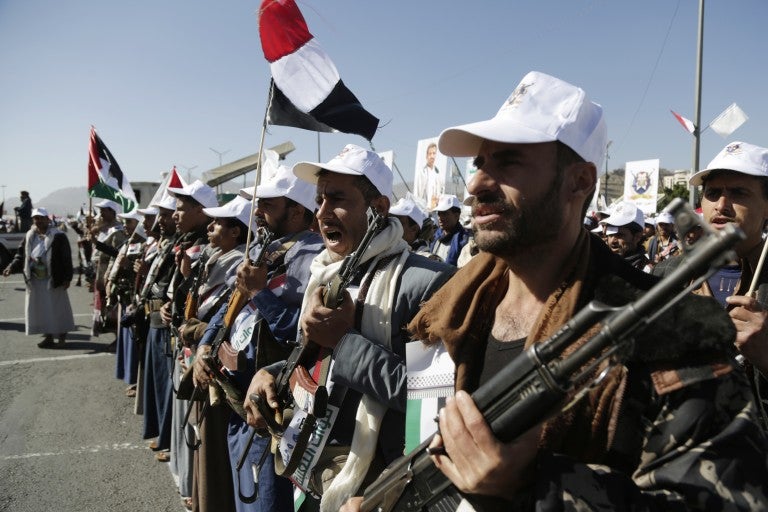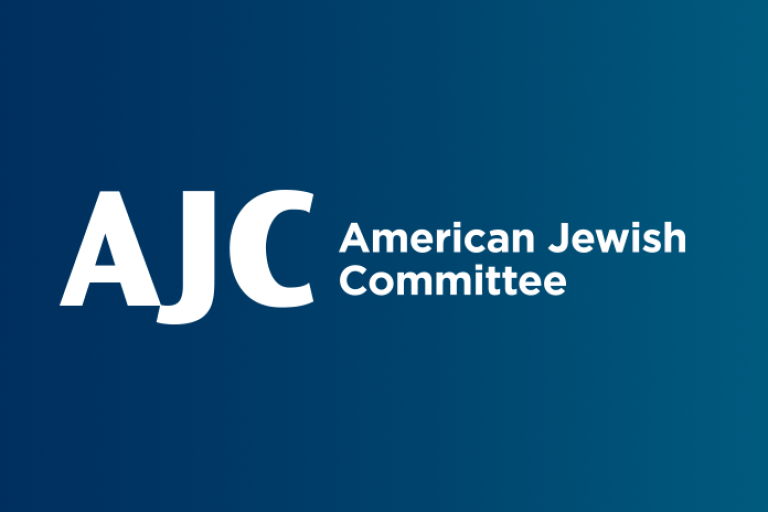August 13, 2024
The following column originally appeared in Algemeiner.
With the Islamic Republic of Iran on the brink of developing nuclear weapons and dragging the entire region toward a full-scale war, the US, Europe, and their allies need an urgent policy review to confront the regime’s clear and present danger to global security.
It is time to move beyond diplomacy and defense, and take concrete actions to thwart Iranian aggression. The US must rally a global coalition to forcefully counter Iran’s conventional, terror, and nuclear threats.
Tehran has called for the annihilation of Israel and the US, supported terrorism directly and through proxies, interfered in other nations’ affairs, and committed severe human rights abuses. The horrific massacre perpetrated by Hamas — an Iranian proxy — on October 7, alongside ongoing assaults on Israel, US troops, and international maritime security, underscore Iran’s true intentions.
This gradual escalation — and the international community’s tepid and ineffective response — bring to mind the tale of the frog in boiling water. Initially comfortable in the warm water, the frog fails to perceive the danger as the water gradually reaches its boiling point until it is too late.
The international community has for too long underestimated and insufficiently countered Iran’s increasing threats. What was once intolerable has become the new norm. The West once believed any Iranian enrichment of uranium was unacceptable. Now, Iran is enriching uranium to 60%, a level dangerously close to weapons-grade, while the regime has kicked out International Atomic Energy Agency (IAEA) monitors and sabotaged IAEA equipment.
Most alarmingly, the latest threat assessment from the US intelligence community no longer includes the phrase: “Iran is not currently undertaking the key nuclear weapons-development activities that would be necessary to produce a testable nuclear device.” Instead, the report states that Iran has “undertaken activities that better position it to produce a nuclear device.”
Iran is not only at the threshold of acquiring nuclear weapons, but also has the means to deliver them. With the largest inventory of ballistic missiles in the region, and continuing advancements toward intercontinental ballistic missiles, Iranian nuclear weapons could soon threaten not just the Middle East, but also Europe and the US.
Indeed, that same US threat assessment warns that Iran will remain a threat after the Israel-Hamas war ends, and “probably will continue arming and aiding its allies to threaten the United States” and back Hamas and others who would hinder a peace deal between Israel and the Palestinians.
And yet, what should be headline news worldwide barely makes a ripple in the back pages of international newspapers — if it is reported at all.
In parallel, the regime has accelerated executions, arrests, and torture domestically, while exporting terror and fueling conflicts. On August 7 alone, Iran executed at least 29 people, and the world barely took notice.
Iran’s proxies — Hamas in Gaza, Hezbollah in Lebanon, the Houthis in Yemen, and Shiite militias in Iraq and Syria — have murdered, injured, and abducted thousands of civilians, fired thousands of missiles at Israeli towns and villages, and killed and wounded numerous US military personnel.
Iran has violated international freedom of navigation in the Middle East and has plotted terror attacks against former US officials, Jews, and Iranian opposition leaders in Europe and the US. Furthermore, Iran has become Russia’s most critical weapons supplier in its brutal war against Ukraine, highlighting its broader destabilizing influence and dangerous alliance.
The onslaught by the Iranian regime, its proxies, and allies is not just a threat to Israel and the Middle East or Ukraine; it represents a concerted effort to overthrow the existing world order and the entire Western security architecture.
The past four years have shown that the Iranian regime does not respond to diplomacy unless it is backed with a robust and credible threat of force.
Iran rebuffed the good-faith efforts by the US and its European allies to reach a diplomatic solution about its nuclear program. An international coalition under US leadership must communicate a credible military threat against Iran’s nuclear installations unless Tehran immediately halts its nuclear program, restores full IAEA supervision, and returns to negotiations in good faith.
The Biden administration should be strongly commended for swiftly moving robust military assets to the region and coordinating an international coalition to help defend Israel against an attack from Iran and its proxies. Nevertheless, it is a strategic mistake to accept Iran’s assault on the Jewish state as an inevitable fact of life. The US and its allies should make it clear to the Iranian regime that it would face dramatic consequences unless it stands down.
Likewise, to have any chance to prevent a nuclear Iran and stop it from further escalating the regional war it has ignited, the West must reimpose crippling sanctions to weaken the regime. The Joint Comprehensive Plan of Action (JCPOA) includes a key provision to snap back all UN sanctions, designed originally for Iranian violations that are far less severe than those occurring now. It is high time to trigger these sanctions.
It is vital for the international community, particularly the G-7, Arab allies, and the EU, to take a firm and unified stance against Iran’s aggressive actions and ensure the safety and stability of Israel and the broader global community. Once and for all, the regime must understand that its malign actions will no longer be tolerated.





